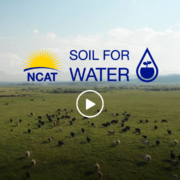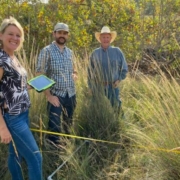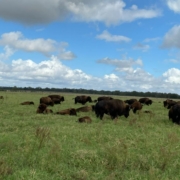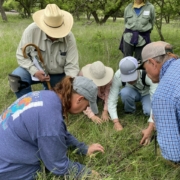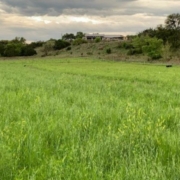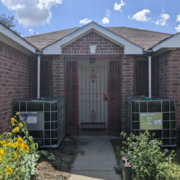WATCH: NCAT Premieres its ‘Soil for Water’ Film
As a camera soars over an impressive piece of Rocky Mountain ranch land, the narrator says, “The soil that covers U.S. farm and ranch land holds a remarkable story. It’s a tale of success and setbacks. At its best, the soil beneath our feet is the source of life, food, and economic security.”
The National Center for Appropriate Technology (NCAT) has released its short film, Soil for Water, to highlight a growing network of farmers, ranchers, and land managers across the United States who are taking steps to catch and hold more water in the soil.
“Your soil health is going to keep you in business,” Texas rancher Tina Weldon says in the film. “If you take care of your soil, the land will give back to you in terms of your productivity.”
More than 120 farms and ranches in 20 states have already joined the free and voluntary Soil for Water network. The project aims to include farmers and ranchers who discover and share land management practices that improve soil health, catch more water in soil, reduce erosion, sustain diverse plant and animal life, and filter out pollutants, all while improving the profitability of their businesses.
“If we’re going to be successful ranching in the long-term, we need to do a better job working together with other ranchers and learn how to do things regeneratively and profitably,” Montana rancher Dusty Emond explains in the short film.
The Soil for Water project is about implementing practical, cost-effective, and lasting ways to regenerate our soil — making farms, ranches, and communities more resilient in the face of climate disruption.
Unhealthy soil doesn’t absorb much water. Healthy soil acts like a sponge, capable of holding hundreds of thousands of gallons of water in an acre. Climate trends across much of the U.S. indicate longer, hotter drought periods punctuated by storms that often are more severe, according to a 2021 USDA report. Regenerative farming practices enable the soil to capture rainfall that otherwise might disappear as runoff. Economically, these practices can increase crop and forage production, drought resilience, access to lucrative new markets, and therefore profitability. Environmentally, they can improve soil health and biodiversity.
The expanded Soil for Water project encourages the adoption of regenerative land management practices through an interactive website, peer-to-peer forum, in-person and online networking opportunities, and the ability to connect with experts and land managers who are finding success with varied practices.
To learn more about the newly expanded Soil for Water project visit SOILFORWATER.ORG.
- Watch the short film here
- Watch the short film plus panel discussion featuring Texas ranchers Orion and Tina Weldon and NCAT specialists

